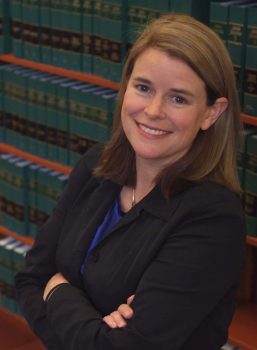Law Review Symposium to Focus on Intersectionality Theory and Human Rights Work The symposium is scheduled for Friday, March 11 and will include a keynote address by Adrien Wing, Associate Dean for International and Comparative Law Programs and Bessie Dutton Murray Professor at University of Iowa College of Law.
The Washington and Lee Law Review’s annual Lara D. Gass Symposium at the Washington and Lee University School of Law will examine intersectionality theory and how this framework can be promoted in human rights discourse.
The symposium, “Centering Intersectionality in Human Rights Discourse,” is scheduled for Friday, March 11 and will include a keynote address by Adrien Wing, Associate Dean for International and Comparative Law Programs and Bessie Dutton Murray Professor at University of Iowa College of Law. The event will run from 9:00 AM to 5:30 PM in the Millhiser Moot Court Room, Sydney Lewis Hall. The symposium will also be available on Zoom. To register to attend virtually, visit the symposium website.
W&L Law professor Johanna Bond is the faculty sponsor for the symposium. Her recent book “Global Intersectionality and Contemporary Human Rights” (Oxford University Press) argues for an expansive definition of human rights, one that encompasses the harm caused by multiple, intersecting forms of subordination.
“Intersectionality theory posits that aspects of identity, such as race and gender, are mutually constitutive and intersect to create unique experiences of discrimination and subordination,” Bond said. “The notion that forms of subordination and privilege intersect in people’s lives in complex and mutually reinforcing ways has replaced outdated, simplistic conceptualizations of discrimination.”
Bond argues that human rights remedies that fail to capture the intersectional nature of human rights violations do not offer comprehensive redress to victims. She says that the United Nations, the central intergovernmental organization charged with the protection of human rights, has been slow to embrace the insights gained from intersectionality theory.
Panelist discussions during the symposium will include the following topics and presenters.
Promoting Intersectionality Through Activism and Coalition
Moderated by Mark A. Drumbl, Washington and Lee University School of Law
Panelists:
- Joanna Bourke Martignoni, Geneva Academy of International Humanitarian Law and Human Rights
- Aya Fujimura-Fanselow, Duke University School of Law
- Seema Mohapatra, SMU Dedman School of Law
- Allison M. Whelan, University of Pennsylvania Carey Law School
Intersectional Human Rights Work at National, Regional, and International Levels
Moderated by Henryatta Ballah, Washington and Lee University
Panelists:
- Shreya Atrey, University of Oxford Faculty of Law
- Gauthier de Beco, Huddersfield Business School
- Pilar Herrero, Center for Reproductive Rights
- Dagmar Schiek, University College Cork, Ireland
Intersectionality Through the Lens of CEDAW: At Home and Abroad
Moderated by Johanna Bond, Washington and Lee University School of Law
Panelists:
- Martha F. Davis, Northeastern University School of Law
- Jill C. Engle, Penn State Law
- Hilary Gbedemah, Committee on the Elimination of Discrimination Against Women
- Genoveva Tisheva, Committee on the Elimination of Discrimination Against Women
The Potential for the UN to Transform Human Rights Discourse (or Vice Versa)
Moderated by Mohamed Kamara, Washington and Lee University
Panelists:
- Lisa A. Crooms-Robinson, Howard University School of Law
- Raaya Gomez, Yale Law School (LL.M. ’22)
- Amanda Lyons, University of Minnesota Law School
For questions regarding the event, contact Elizabeth Hudson at Hudson.e22@law.wlu.edu.
The Lara D. Gass Symposium is named in honor of Lara Gass, a member of the Law Class of 2014 who passed away in an automobile accident in March of 2014. Gass served as Symposium Editor for the Washington and Lee Law Review, organizing the Law Review’s 2014 symposium focused on the 40th anniversary of Roe v. Wade. Lara was active within the Women Law Students Organization and also served as a Kirgis Fellow, the law school’s peer mentoring group, during the 2012–2103 academic year. In January 2014, Lara received recognition for her academic achievements, her leadership abilities, her service to the law school and university community, and her character when she was inducted into Omicron Delta Kappa, the National Leadership Honor Society.
 Johanna Bond
Johanna Bond
You must be logged in to post a comment.